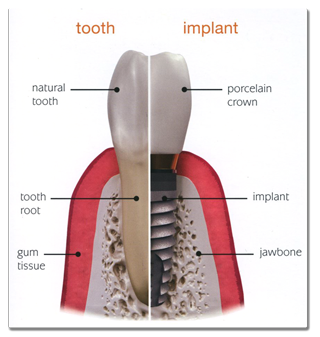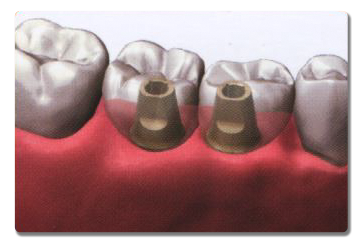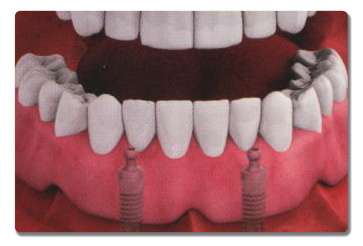Ask yourself these simple questions
If your answer is Yes to any of the above questions
Dental Implants maybe your answer.
Dental implants have been around over 50 years and now become a new standard of care. Dental Implants in Canberra have certainly picked up this trend in recent years. Dental implants are the closest imitation of mother natures’ work in creating a tooth.The missing roots are replaced by a titanium screw positioned in the jawbone. In the past, it would take 6 to 12 months for the implants to be integrated into the jawbone (osseointegration). Significant improvement in various types of the implant surface has helped to reduce the integration time to 10-12 weeks.
Laser-Lok technology by Biohorizons has made the integration not only happening at the bone-implant level but also gum-implant level. The implant will look more natural in the mouth and maintenance for the implants becomes effortless.
The dental implants provide support for the crown(s) on top and replace a missing tooth or teeth. For patients who wear dentures, the implants serve as anchors for the dentures. Metal housings will be fitted at the base of the dentures. They will click over the implant heads to provide stability for your denture.
WHAT WILL HAPPEN WHEN I CHOOSE NOT TO REPLACE MY MISSING TOOTH?
When lack of stimulation from the roots, the jawbone shrinks just like muscle wasting when one is sick and bed-ridden for some time. The teeth adjacent and opposing to the missing tooth will move and tilt towards the gap. Spaces between your teeth are widened and favour food trap, decay and gum disease. The opposing tooth or teeth look longer due to super-eruption. Your bite plane could change. All these events slowly happen and they can change your appearance and make you look older.
AM I A CANDIDATE FOR DENTAL IMPLANTS?
Most adults and some adolescents whose facial structures have matured can have dental implants. Patients who are proned to infections such as patients with poorly-controlled diabetes, immuno-compromised conditions so as smokers, can have much higher risk of implant failure. These issues will be discussed at the consultation visit.
WHAT DOES THE IMPLANT PROCESS INVOLVE?
The dentist will go through the details of your general health including the medications you are taking and assess the status of your dental health. Xrays, impressions of your teeth and the bone scan of the implant site will be included in the assessment.
If the volume and the quality of the bone receiving the implant is not adequate for optimal implant placement, a bone graft maybe necessary. It could take three to six months for the site to mature before the implant can be inserted. Specialist dentist could be involved in this step.
The procedure will be carried out under local anaesthetics. If you feel nervous about the appointment, it maybe helpful for you to have some form of oral sedation medication, prescribed by your doctor. You will need someone to drive you to the appointment and take you home afterwards. It is essential that you follow our instructions on taking antibiotics and pain relief. Generally, you should be comfortable enough to return to work the next day.
You will have a form of temporary restoration while you wait for the implant to integrate. The method of temporary replacement of your missing tooth or teeth will be discussed with you at the consultation visit. The healing process mostly takes three months.
FINAL RESTORATION AND CARE FOR THE IMPLANT
Once the integration process completed, it takes two weeks to make a crown or bridge. The fitting of the crown, bridge or denture over the implants should be comfortable and requires no anaesthetics. We advise you to strickly follow our instruction on the oral hygiene methods to enjoy the long-term success of your implant. Six monthly check-up and clean is a must. The implant is like your own tooth, even though it will never be decayed it certainly can suffer from gum disease, lose its support from the adjacent hard and soft tissues and eventually exfoliate.
MINI DENTAL IMPLANTS MDI, WHAT ARE THEY AND HOW ARE THEY DIFFERENT TO THE CONVENTIONAL IMPLANTS?
Mini dental implants are smaller in diameter, usually between 1.8mm to 3.0 mm. Mini dental implants do not have the long track record as the conventional implants. However, more and more studies in recent years seem to promise a higher and higher success rates.
MDI were initially developed as the denture stabilization system for patients who medically could not withstand the full implant process for the conventional implants, or those who did not have enough bone for the conventional implants. Because of the minimally invasive method of MDI placement, the healing process can be faster and many patients can wear their dentures over the new implants immediately. The MDI could be an option for those who seek an alternative with a lower cost.
SO WHAT ARE YOU WAITING FOR?
Some images and content used with permission from BioHorizons®.





